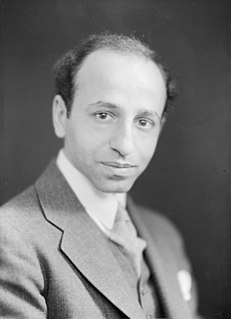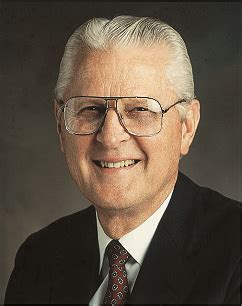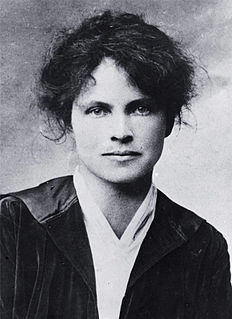A Quote by Anuj
A person who is in the elements of his own is often
thrown to a situation to be shown all alone; and people who aren’t may
be in a position seen by all, but they are often unknown to be utterly
lone.
Related Quotes
On occasions, global or personal, we may feel we are distanced from God, shut out from heaven, lost, alone in dark and dreary places. Often enough that distress can be of our own making, but even then the Father of us all is watching and assisting. And always there are those angels who come and go all around us, seen and unseen, known and unknown, mortal and immortal.
You may give a piece of bread to a hungry person, and when the cravings of hunger return some one else must administer to his wants again; to put that person in a position to earn his own subsistence is true charity; in this way you direct his feet in the path of true independence, he is then only dependent on his own exertions and on the blessings of his God.
Anger makes people feel uncomfortable, because the minute somebody shows it, it puts you in a position where you can't laugh or make light of something... not to trivialise it I don't mean. But your reaction to anger is supposed to be fear or returned anger. So, you're really trying to control a situation when you show anger and it's a very weak position to take. It often works on people who aren't in a position to fight back.
Idleness is often covered by turbulence and hurry. He that neglects his known duty and real employment naturally endeavours to crowd his mind with something that may bar out the remembrance of his own folly, and does any thing but what he ought to do with eager diligence, that he may keep himself in his own favour.
The dictionary describes a selfish person as one who is 'concerned excessively or exclusively with oneself: seeking pleasure or well-being without regard for others.' May we add, a selfish person is often one who refers to 'I,' 'me,' and 'mine' rather than to 'we,' 'ours,' 'yours,' or 'theirs.' This person is anxious to be in the limelight, to be on center stage in life's little dramas. He or she may be a poor listener, or a conversation monopolizer. Selfishness is the great unknown sin. No selfish person ever thought himself to be selfish.
I have seen books made of things neither studied nor ever understood ... the author contenting himself for his own part, to have cast the plot and projected the design of it, and by his industry to have bound up the fagot of unknown provisions; at least the ink and paper his own. This may be said to be a buying or borrowing, and not a making or compiling of a book.
In my writing, I'm often describing a universal situation. A situation in which human beings often choose to violate each other. Sometimes I happen to explore that in terms of the black/white dynamic. Generally, a white person does not like me to say, or does not like to be told, "You know, what you did was incredibly wrong."
Vermont tradition is based on the idea that group life should leave each person as free as possible to arrange his own life. This freedom is the only climate in which (we feel) a human being may create his own happiness. ... Character itself lies deep and secret below the surface, unknown and unknowable by others. It is the mysterious core of life, which every man or woman has to cope with alone, to live with, to conquer and put in order, or to be defeated by.




































